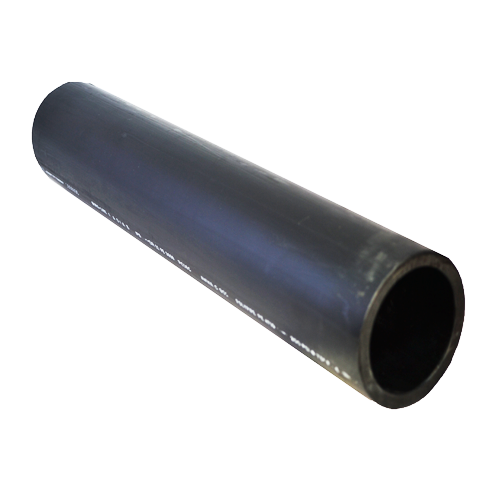Common Questions About Texas hdpe pipe manufacturer and Their Products
Understanding the Key Benefits of HDPE Pipeline for Water and Wastewater Monitoring
The usage of HDPE pipe in water and wastewater management presents numerous advantages that warrant consideration. Its phenomenal toughness and lengthy lifespan make it a preferred option for many tasks. Additionally, the material's resistance to rust and chemical damages enhances its integrity in numerous environments. Nonetheless, the benefits prolong past just durability and resistance. Discovering its cost-effectiveness and environmental influence exposes even a lot more compelling factors for its widespread fostering in contemporary facilities
Extraordinary Resilience and Durability

HDPE pipeline stands out for its exceptional sturdiness and longevity, making it a preferred selection in water administration systems. Constructed from high-density polyethylene, these pipes can withstand significant stress and stress, making certain trustworthy efficiency gradually. Their robust nature enables them to endure extreme ecological conditions, consisting of temperature level fluctuations and soil movements, which can cause other materials to fall short.
The life-span of HDPE pipelines often goes beyond half a century, providing an economical option for communities and markets alike. Additionally, the product's light-weight residential properties streamline setup, minimizing labor prices and durations. This resilience minimizes the need for regular fixings or substitutes, better enhancing its economic charm.
In water monitoring applications, the dependability of HDPE pipelines suggests less disruptions and improved solution connection, making them essential to lasting infrastructure growth. The mix of sturdiness and durability solidifies HDPE's function as a cornerstone in reliable water administration solutions.

Resistance to Corrosion and Chemical Damages
While lots of materials surrender to corrosion and chemical damages over time, HDPE pipelines exhibit exceptional resistance, making them perfect for various water monitoring applications. This resilience originates from the molecular structure of high-density polyethylene, which is naturally non-reactive and does not rust like metals or deteriorate from direct exposure to extreme chemicals. Because of this, HDPE is very efficient in atmospheres with aggressive compounds, such as wastewater systems that might include acids, bases, and organic solvents.
In addition, HDPE pipes can stand up to environmental variables such as dirt acidity and saline conditions, further improving their suitability for varied applications (American Plastics HDPE Pipe Manufacturing). Their capacity to keep structural integrity in time minimizes the risk of leakages and failings, which is critical in making sure the security and dependability of water distribution and wastewater administration systems. The resistance to rust and chemical damage significantly adds to the total effectiveness and long life of HDPE piping solutions.
Cost-Effectiveness and Economic Benefits
When taking into consideration the monetary implications of water monitoring systems, the cost-effectiveness of HDPE pipelines becomes obvious. These pipes provide reduced installation and maintenance prices contrasted to standard materials like steel or concrete. Their lightweight nature streamlines transportation and installation, causing decreased labor expenses. Furthermore, HDPE pipes display a long life-span, usually going beyond 50 years, which translates to less substitutes and long-term cost savings.
Additionally, the resistance of HDPE to corrosion and chemical damages decreases the demand for expensive repair services and substitutes. The pipes likewise support reliable water flow, decreasing power costs related to pumping systems. By minimizing leaks and water loss, HDPE pipelines add to significant financial benefits for districts and industries alike. On the whole, the initial investment in HDPE piping can generate substantial financial returns over the life expectancy of the water management system, making it a prudent selection for sustainable facilities growth.
Environmental Sustainability and Minimized Influence

Convenience and Flexibility in Installment
Since of their distinct properties, HDPE pipelines use amazing flexibility and flexibility in installment, making them appropriate for a large range of applications. Their lightweight nature enables less complicated handling and transportation, decreasing labor costs and installment time. HDPE pipelines can be curved and shaped to fit numerous surfaces and job requirements, which is particularly advantageous in challenging atmospheres.
Furthermore, their resistance to corrosion and chemical damages enables for setup in varied settings without the need for specialized safety finishes. The ability to fuse joints develops a continuous, leak-free system, boosting the general honesty and integrity of the setup. HDPE's flexibility additionally fits ground activity, decreasing the threat of damage in areas vulnerable to shifting dirt. On the whole, these qualities make HDPE pipelines not just versatile however also a favored option for water and wastewater management systems.
Frequently Asked Inquiries
How Does HDPE Pipeline Compare to PVC in Water Administration Applications?
HDPE pipeline uses premium flexibility, resistance to corrosion, and durability compared to PVC. Its lighter weight helps with much easier installment, while its lengthy lifespan reduces replacement costs, making read HDPE a preferred choice in water management applications.
What Is the Lifespan of HDPE Pipes Under Common Problems?
Under regular conditions, HDPE pipes can have a lifespan ranging from 50 to 100 years. webpage Their sturdiness and resistance to deterioration add to their lasting efficiency in numerous applications, making them a reputable selection for facilities.
Are HDPE Piping Recyclable After Their Service Life?
Yes, HDPE pipes are recyclable after their life span. hdpe pipe suppliers Midland TX. They can be processed and repurposed into brand-new items, considerably decreasing ecological effect and promoting sustainability within the sector, making them a green selection for piping services
What Is the Installation Refine for HDPE Pipes?
The installment process for HDPE pipes includes site preparation, trenching, pipeline blend or mechanical signing up with, backfilling, and pressure screening. Appropriate methods guarantee a durable and reliable system for transporting water and wastewater properly.
Can HDPE Water Lines Be Utilized for Both Drinkable and Non-Potable Water Systems?
Yes, HDPE pipelines can be used for both safe and clean and non-potable water systems. Their versatility, toughness, and resistance to corrosion make them ideal for various applications, making certain safe and effective transportation of water in different contexts.